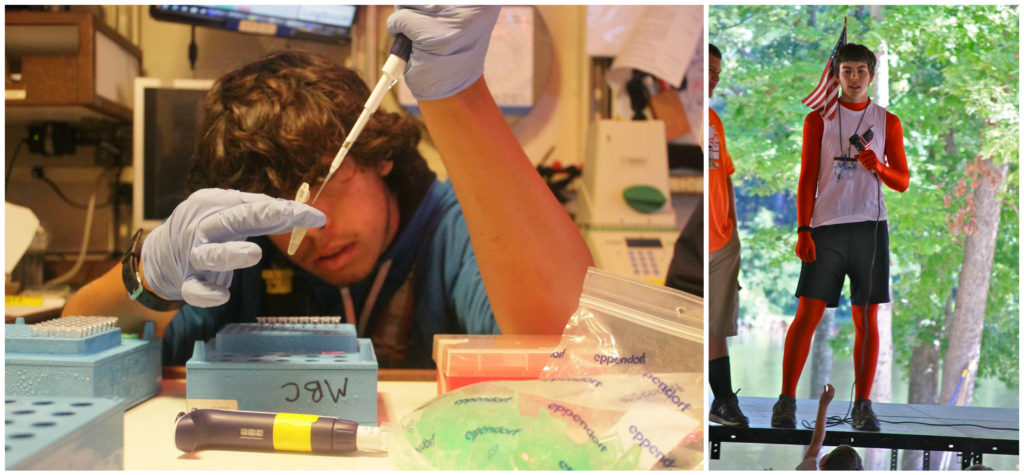Note: This article was originally published here for the American Geophysical Union’s Blog.
One of the most amazing things that I’ve done in preparation for grad school is to proudly state “Extensive experience in improvisation theatre performance” on my CV.
There is no question of the importance of science communication to non-scientific audiences. However, what we are just now learning is exactly how we as scientists can communicate, both with each other and with others outside of the science community. After studying science communication, I realized that I have been learning to communicate new ideas quickly and effectively my whole life, in improvisational theatre. Improv teaches actors how to bring an entire scene to an audience, and convey a message (while usually pretty absurd) quickly and effectively. Improv theatre doesn’t just teach us to entertain, it gives us rules and structure for communicating.

Photo credit: Lake Norman YMCA
There are three rules any improv performer lives by in a scene, and these three rules can easily be applied to science communication:
- Always Accept- In an improv scene, you must always be accepting of whatever comes your way. Now this doesn’t mean that you’ll necessarily like what comes your way. When sculpting a new world out of nothing, a pair of performers have no time to set aside “ground rules” for this world. It happens in scene, and as a partner in a conversation, you must always accept. With scicomm, as a speaker or listener, our primary goal should be to always be aware of what we are being told. Accepting is the biggest key to moving your own message forward!
- Yes And… – Have you ever been in a conversation with someone that becomes an interrogation for information because the other person doesn’t want to say anything more than “yes” or “no”? Improv actors have to fight this all the time. This rule tells us to add on to whatever we are given. Just like in improv, in a conversation, it will always take two to accomplish a goal. Don’t just accept a present, give one back too.
- Show, Don’t Tell – This the improv actor’s favorite: show don’t tell. Make what you are talking about real. In improv theater for example, it isn’t enough to be surprised. You have to be SURPRISED. It isn’t enough to be upset, you have to challenge yourself to be UPSET. This may be the most important challenge for us as communicators as well. If you are going to make an impact, if you are going to be memorable and make your point or your idea stick, don’t give someone words. Give them an image, give them a concept, and give them something they will remember.
We are still learning every day how to communicate with each other better, but as a start, applying what we already know (for that is improve theatre) will be an important first step!

